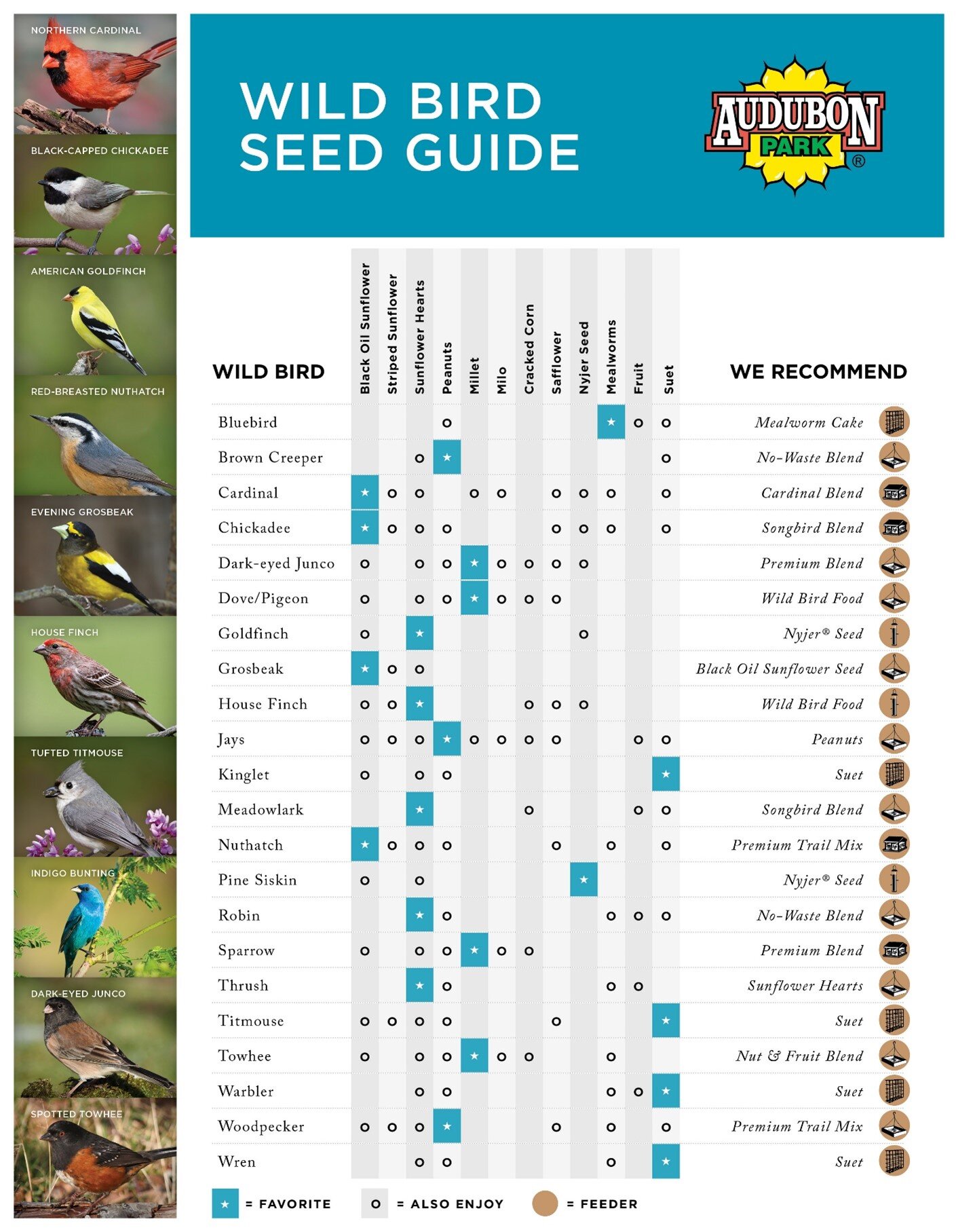Bird Feeding 101
Looking for the answers to your bird feeding questions? We asked Audubon Park co-owner Ed Mills and professor and author John Marzluff to answer the most common questions we receive.
Which bird seed blend should I use during the cold winter months?
During the winter months we recommend a blend with a high oil content, like Audubon Park Premium and Songbird.
What ingredients should I be looking for (or avoiding!) in my bird food?
There aren’t usually “bad” ingredients in bird food. Choose a blend that lists sunflower seeds, nuts, or millet at the top. Depending on where you live, you may want to avoid mixes where the first ingredients are grain products like milo or corn. These items are favorites of only a few birds, such as Quail, Jays, and Doves.
How do you keep a neighborhood cat away from the feeder?
Neighborhood cats can be quite the challenge when it comes to backyard bird feeding. There are a couple of techniques you can try. First, try installing a motion sensitive water sprinkler in an area of your yard where you regularly see the cat. After getting doused with water a couple times it should get the message and avoid your yard. Second, if you know the owner, consider talking to them about the issue. Third, consider the placement of your bird feeder. On a pole out of the cat’s reach is one great option.
Do I need to provide water near my feeders even if I live near a lake or river?
No matter where you live it’s an excellent idea to keep fresh, clean water available to the birds at all times. Many small birds can’t travel very far in one day and will welcome the easy access to a drinking source. Additionally, having water in your backyard may even attract more birds.
Is there any benefit to using a bird seed mix over plain seeds (like sunflower seeds)?
This is a question we get fairly often. By using a seed mix you are able to attract a wider variety of bird species to your feeder. Additionally, some species, like Towhees and Juncos, prefer the seed mix to a single seed type. If you are already using a seed mix and want to attract an even greater variety of birds at your feeder, try a mix that includes peanuts and fruit.
I have a squirrel eating from my feeder. How can I make it stop?
Squirrels are pesky little critters and sure do love bird food! To keep them off the feeder, try hanging it on a pole that is at least eight feet away from anything the squirrel could climb on – roof lines, power lines, or trees. Additionally, you can try using a caged feeder which often deter squirrels.
How can I help keep the birds safe when they’re at the feeder?
Cover is essential when it comes to keeping the birds safe. Make sure you are placing your feeder near a row of bushes (real or fake) to offer protection. You can also provide brush piles for cover – just compost your shrub and flower clippings in a pile. This kind of ground coverage provides birds with hiding places from hawks and cats as well as a nesting habitat.
How often should you wash your bird feeder?
We recommend that you wash your feeder every 2-3 weeks. You can use a solution of water and a little bleach and let air dry fully before refilling.
To help, get in the habit of washing between feedings. Fill your feeder with enough food for one week or two (this ensures that the food is always fresh) and then wash before you refill.
Any tips for attracting specific bird species to my yard? For example, I really want to attract Goldfinches.
Yes! Feed them their favorite foods. Here is a handy chart to help you choose the right seeds and mixes:
